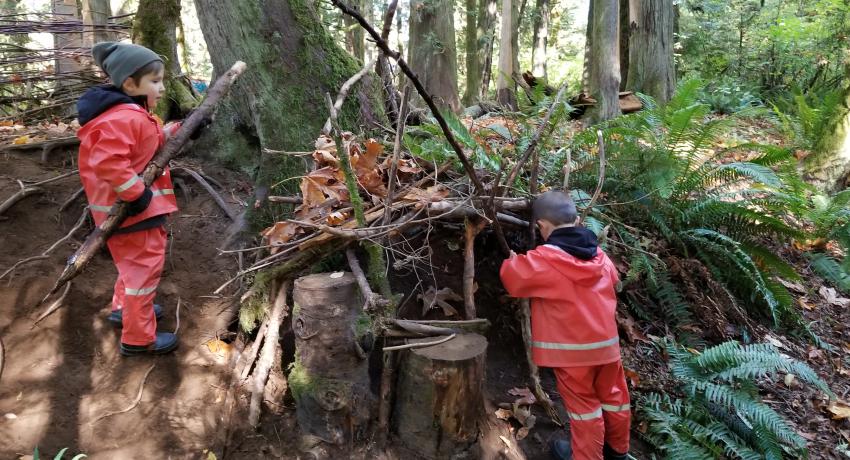Tribal ECEAP During COVID-19
Washington Tribal Nations are comprised of strong communities rooted in family, culture, and tradition. Like others, the COVID-19 pandemic and Washington State’s Stay Home, Stay Healthy order had huge impacts on tribal communities. For tribes, this included interrupted community gatherings, cultural activities, religious practices, and early learning services.
Safety precautions are tremendously important in tribal communities because tribal people are statistically at higher risk of illness and death with and without the impacts of COVID-19. Children in tribal communities frequently interact and connect with elders, creating a greater risk to these vulnerable community members. Disproportionately, the Centers for Disease Control and Prevention (CDC) research indicates that American Indian/Alaska Native (AI/AN) people are among the racial and ethnic minority groups at the highest risk for severe COVID-19 outcomes. They link this to persistent racial inequity, historical trauma, and interconnected services.
In the 2019-20 school year, 10 tribes in Washington provided Early Childhood Education and Assistance Program (ECEAP) in their communities. Tribal ECEAP programming provided children and families with health services, family support, and education, along with other supports that meet the needs of each tribe such as culture and tribal language. Teaching young children traditional ways of life is an important part of building strong tribal communities.
When tribal health departments instructed tribal ECEAP sites to suspend in-person services to protect children and their communities, tribal ECEAP quickly moved to provide modified services for children and families. Tribal ECEAP sites used a variety of creative ways to provide culturally responsive modified services to ensure children continued receiving education and families continued to receive support services. Tribal ECEAP also worked with families to ensure they could meet basic needs and that isolation was minimized. Perhaps most importantly, tribal ECEAP worked with families to stay connected to culture and community during the pandemic to reduce isolation.
Squaxin Island Tribe
Squaxin Island Tribe Early Learning Center ECEAP worked with community partners to provide meals and food boxes for families who were suddenly without the resources for food when the Washington State Stay Home, Stay Healthy order was put in place and in-person classroom services were suspended due to the COVID-19 pandemic.
Squaxin ECEAP teachers use Facebook as a way to stay connected with families and continue educational services for children. ECEAP and Early Head Start teachers post daily lessons on the Squaxin Tribal Early Learning Center Facebook page. These lessons include nature-based instruction, Lushootseed language, Second Step, and positive behavior support lessons. Teachers also provide evening storytime.
The Squaxin Tribal Early Learning Center is part of the DCYF ECEAP Outdoor Preschool Pilot and provides outdoor education for many of their students, including children who are enrolled in ECEAP. Outdoor learning aligns with tribal values, resulting in children building strong connections to their culture and the environment.
The Squaxin Child Development Center partners with tribal elders to share traditional songs, dance, language, and stories with ECEAP children and families which continued during the pandemic using Facebook.
The program's teaching team was able to problem-solve so they could work from home to continue to serve families during the COVID-19 pandemic. Staff complete weekly check-ins with families, weekly Zoom meetings with children, and kindergarten readiness meetings with parents.
Squaxin ECEAP used its strong partnerships with the community and other Squaxin Island Tribal programs to provide supports for families for education, culture, and family support.

